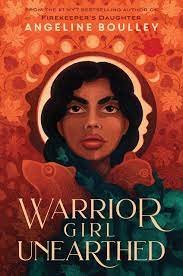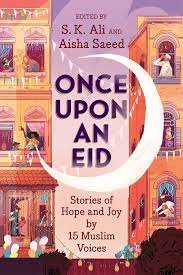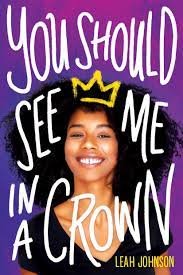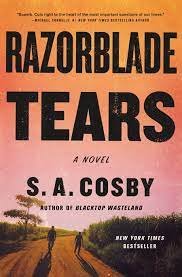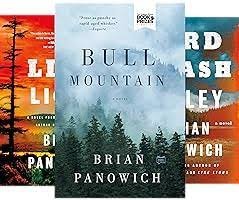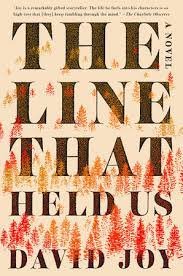Did You Read?
If you looked at my Goodreads bookshelf, you probably think I’m a weirdo. From young adult fiction to cozy mysteries and questionable junky romance to more serious nonfiction about social issues, my book list is both eclectic and predictable (if you know anything about me). Alternating between audio and physical books, I can usually rock 2-3 titles at once (which is maybe why it takes me forever to read an entire book).
I’m often embarassed that I don’t read as many books as “I should”. The should is self-imposed pressure noted perfectly in the Portlandia sketch “did you read”. Each year, I set an arbitrary numerical goal, then select books that expand my horizon, center the voices of people of color and push me to be a better human.
Here are some highlights from 2023, starting with my work-centered choices.
On My Desk:
Throughout the school year, I intentionally select a young adult book to plop on my desk, picking it up during “silent reading” and talking about it during class in effort to model and normalize conversations books we do and don’t find engaging. Most note able are…
Warrior Girl Unearthed by Angeline Boulley. Most known for her debut novel Firekeeper’s Daughter, Boulley has set this new story in the same fictional world, but refined writing style while keeping true to the heart of her work–telling the stories of indigenous communities, specifically missing native women. This book is part mystery, part romance, and part drama. It explores themes of finding your place in your community and fighting for change when the powers that be are determined to stay mediocre.
You Should See Me in My Crown by Leah Johnson–great characters, two girls falling in love. This whole book is a vibe.
Once Upon an Eid by SK Ali–this is a series of heartwarming stories set during or around Eid. They showcase the importance of the holiday in Islam and the beauty of faith and family. Having interviewed Ali last year, I have a bias towards her writing!
Around the House:
My mindless “guilty pleasure" reading this year was the Bridgerton series, books 6-8. I popped on the audiobooks while I cleaned, ran errands, or organized the apartment. It was a perfect mindless escape. No expectation to follow the plot or expend emotional labor.
On A Roadtrip:
As a kid, I was an avid reader of Encyclopedia Brown and Nancy Drew. My favorite book in high school was Alexandre Dumas’ Count of Monte Cristo (1800 pages of galavanting, deception, and revenge). As a result, I’m always on the lookout for a good mystery or detective story. Today, this interest has evolved into my love of crime fiction which conveniently has overlapped with my husband Nate’s frolic into Southern Noir. Upon his recommendation, I was introduced to author SA Cosby. Hands down Razorblade Tears is my all-time favorite book in this category (technically I read this last year). I’m hard pressed to think of a more engaging first five pages of a novel. This year, I flew through All the Sinners Bleed and My Darkest Prayer. Cosby writes with a cinematic level of description that lingers, replaying over and over in your mind’s eye.
On Errands:
If you’re looking for a mix of fun and depth, try The Stand In by Lily Chu. I came for the Asian protagonist and cute cover but stayed for the mystery, romance, and deeper themes about identity and purpose. Chu joined us on the IWL podcast this fall and I’m in queue for her next release on Libby/Sora.
This year’s Southern Noir runner up is Brian Panowich’s trilogy Bull Mountain. It’s gritty with actual stakes as the characters are often caught in a moral quandry. David Joy’s When the Mountains Burn and The Line That Held Us are honorable mentions. Lastly, as a binge viewer of the show Justified, I picked up Pronto, which launches Raylin Givens arc written by icon Elmore Leonard (I know he’s the GOAT), but I think I wasn't in the right headspace at the time.
On My Mind:
Now, for the books that won’t leave me alone and I plan to unpack in future writing. I read all of these in audiobook format because the authors read their work, making it even more powerful.
Dopesick by Beth Macy– Although I'm late to this book, it's worth the hype. We all “know” about the opioid crisis in America but I don't think we actually understand the social and political institutions that have created the dope dependent culture we have in the US. This book challenged me to think more deeply about drugs in the US, my own beliefs about prescribed medication, and build my empathy for those most directly impacted by the crisis.
Poverty by America by Matthew Desmond–Desmond does not miss. Having read Evicted, his book on the housing crisis a few years ago, I had high expectations for both the writing and the content of this book. Often, we want to view issues like “poverty” as individual rather than collective or as accidental rather than intentional. Desmonds lays out the ways we've created and continue to uphold poverty in the US (and ways we could actually address/mitigate it if we had the gumption). Everyone needs to read this.
Nice White Ladies: The Truth About White Supremacy, Our Role In It and How We Can Dismantle It by Jessie Daniels–Karens, the KKK, and white culture through white families are just snippets of the range of topics this book covers. It’s not just for white women, but if you are white woman and haven’t read this, move it to the top of your list this year. Daniels is honest, matter-of-fact, and sometimes uncomfortably blunt. Her sociologist/historical lens sets this apart from related books, and one of the many reasons we chose it for our #readlessbasic book club. In our IWL interview, it was obvious Daniels walks the talk on facing her own white supremacists indoctrination and role. in dismantling the current system. Find her accompanying study guide here.
Please, White Women Come Home: Hand Me Your Bias & I’ll Show You Our Connection by Kimberlee Yolanda Williams–A compilation of letters written to a “missing” white sister was a stylistic risk Williams took that works. Each letter sits somewhere between calling in and calling out social interactions that point out racism, classroom, homophobia and much more. It maintains a tone of hope while not sugar coating pain. Our IWL author interview comes out this month.
Freedom is a Constant Struggle by Angela Davis–this was on my list for a while. I highly recommend the audiobook as Davis reads it to you and you feel her pointed words convicting you to be better. In light of recent events in Palestine, her opinions about the oppression and genocide of the Palestinians is especially poignant. My biggest takeaway is that if we want to build diverse coalitions around a particular issue, we need to consistently draw parallels between issues–not to compare but to build empathy and start with what people know.
I read a few other books I really loved but this post is getting too long so I’m going to wrap it up. If you’ve read any of the above books, I would love to discuss! So hit me up on the socials, text or via email.
Here’s to getting smarter, more thoughtful, and more compassionate in 2024.

